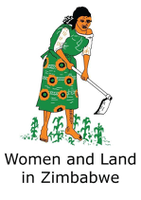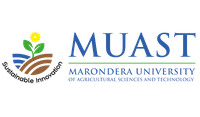Terms of reference for the technical and organizational diagnosis of the Tamarind tree in the Binga region
Job Description
Terms of reference for the technical and organizational diagnosis of the Tamarind tree in the Binga region, along with technical support for the formalization of selected cooperatives in this value chain
I. Context:
The Zambezi region, traversed by the majestic Zambezi River over a stretch of 2,750 kilometers, is distinguished by its remarkable ecological diversity, encompassing an impressive variety of landscapes, including wetlands, floodplains, tropical forests, savannas, and spectacular waterfalls. This environmental richness provides an ideal setting for a multitude of economic activities, with agriculture, fishing, and tourism playing a prominent role.
Within this botanical diversity, the tamarind tree emerges as an essential component in preserving this ecosystem. This leguminous tree plays a vital role in agroforestry. Its remarkable resilience against livestock damage and human activities makes it a valuable asset, particularly thriving in communal areas.
Furthermore, the tamarind tree holds significant socio-economic importance in the region, especially as a source of income for many women, sometimes the sole source. However, these women require increased support to organize their efforts and boost their incomes. Mentorship and development programs will empower these women, helping them harness the full potential of the tamarind tree and improve their quality of life while preserving and or improving the region's precious ecosystem.
In this perspective, a partnership between Marondera University of Agricultural Sciences and Technology (MUAST) and the OCP Foundation has been established. The overarching goal of this partnership is to empower women involved in tamarind production, an endemic plant of the Zambezi Valley, to increase their income and enhance their resilience to climate change.
The success of this project fundamentally relies on the active participation of local communities, which forms the essential foundation for its accomplishment. At the local level, various groups are engaged in tamarind production. Therefore, it is imperative to fully understand the local context and provide appropriate support to these groups, assisting them in structuring themselves more formally.
II. Framework of the inquiry
This initiative is an integral component of the aforementioned partnership. The parties mentioned earlier are planning to initiate a consultation process with the objective of selecting a service provider to:
● Conduct a comprehensive technical and organizational diagnosis to enhance understanding of the local context.
● Provide technical assistance for the formalization and legal establishment of the selected groups following the diagnostic phase.
The objectives of the current mission include:
1. Diagnostic and Baseline Study:
● Compile a list of groups operating within this value chain, primarily in production, but also, where applicable, at other levels such as transportation and resale.
● Evaluate the income level and technical and organizational maturity of the involved stakeholders.
● Evaluate the consumption and utilisation of tamarind
● Identify capacity-building needs (both technical and organizational).
● Assess existing forest practices.
● Identify the main constraints encountered by these cooperatives.
● Propose a training plan specifying appropriate support methods, taking into account identified specific needs.
● Identify and analyze socio-economic and environmental factors influencing value chains and groups.
● Define baseline project indicators.
2. Assistance for the Formalization of Groups:
After the validation of the first part by MUAST and the OCP Foundation, and the definitive targeting of groups to be supported, the second part will involve assisting these cooperatives in their legal formalization, in accordance with local regulations.
III. Implementation Phases
Taking into consideration the aforementioned points, this service will be divided into two components:
1. Conducting the Diagnosis and Baseline Study:
● Preparatory Phase: Information gathering, mobilization, and preparation of operational aspects for the mission.
● Phase 2: Diagnosis of the local ecosystem and the target value chain.
● Phase 3: Diagnosis of cooperatives operating within these value chains and conducting a baseline study.
● Phase 4: Development of a capacity-building plan for group beneficiaries and an action plan for the formalization of these groups.
Duties and Responsibilities
Approach for this first part:
● Conduct in-depth interviews with cooperative members to understand their needs, constraints, and aspirations.
● Conduct direct observations of cooperative activities to gain a better understanding of their operations.
● Collect quantitative data, such as production figures, incomes, etc., to support the analysis.
2. Assistance for the Legal Establishment of Groups:
Once the first part is completed and the diagnostic report and target value chains are validated, the second component will involve supporting selected groups in formalizing their legal status in accordance with local regulations.
At the conclusion of this service, the anticipated objective is to gain a thorough understanding of the local context, comprehend the specificities of the tamarind value chain in the region, and achieve the legal formalization of groups, accompanied by a clearly defined capacity-building plan.
IV. Duration:
● Conducting the Diagnosis and Baseline Study: to be conducted over two months, with 30 days billable.
● Assistance for the Legal Establishment of Groups to be done in 60 days.
V. Mission Location: Binga region, situated approximately 850 km from the capital city of Harare.
VI. Languages:
● Language of Field Mission: Tonga and Nambya
● Language for Deliverables: English.
VII. Expected Deliverables
Qualifications and Experience
VIII. Desired competencies and qualifications of consultant
• Experience with working with communities
• A minimum of 10 years of experience in conducting similar studies
• Strong analytical and quantitative research skills
• Ability to consolidate information from multiple sources, write timeous and succinct information analysis and report writing
• Master’s Degree in Post-harvest Science, Food Safety and Quality Management, Law, Policy and Governance. A PhD will be an added advantage.
Similar Listings

Call for a Consultant to facilitate the development of HOSPAZ RESOURCE MOBILISATION AND STRATEGIC PARTNERSHIPS DEVELOPMENT
Unknown — Unknown

Consultant for Developing Internal Lending and Savings Schemes (ISALS) Tracking Portfolio Tool
Women and Land in Zimbabwe — Harare

Location: Marondera
Company: Marondera University of Agricultural Sciences and Technology (MUAST)
Expiry Date: 2024-02-09 00:00:00
